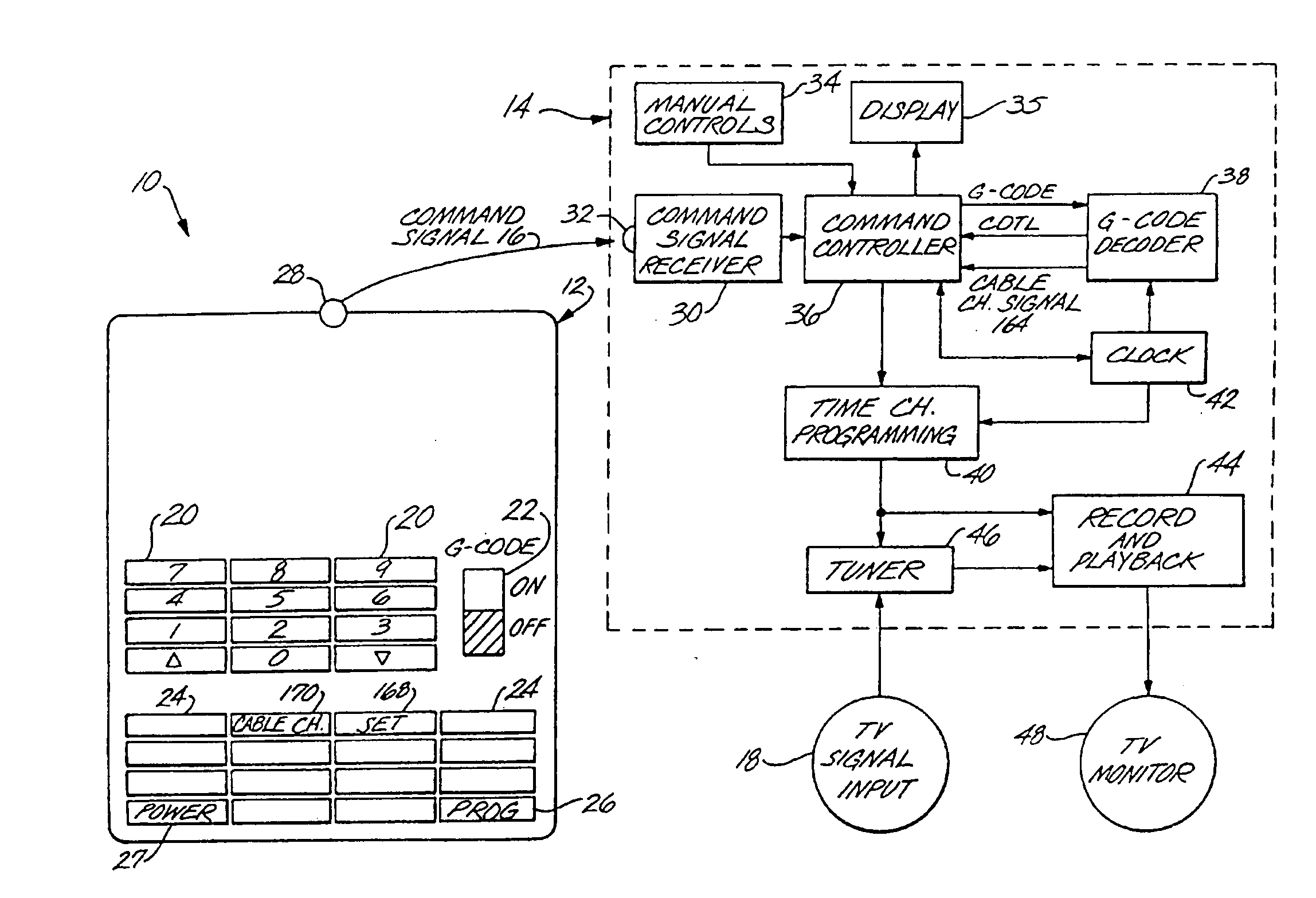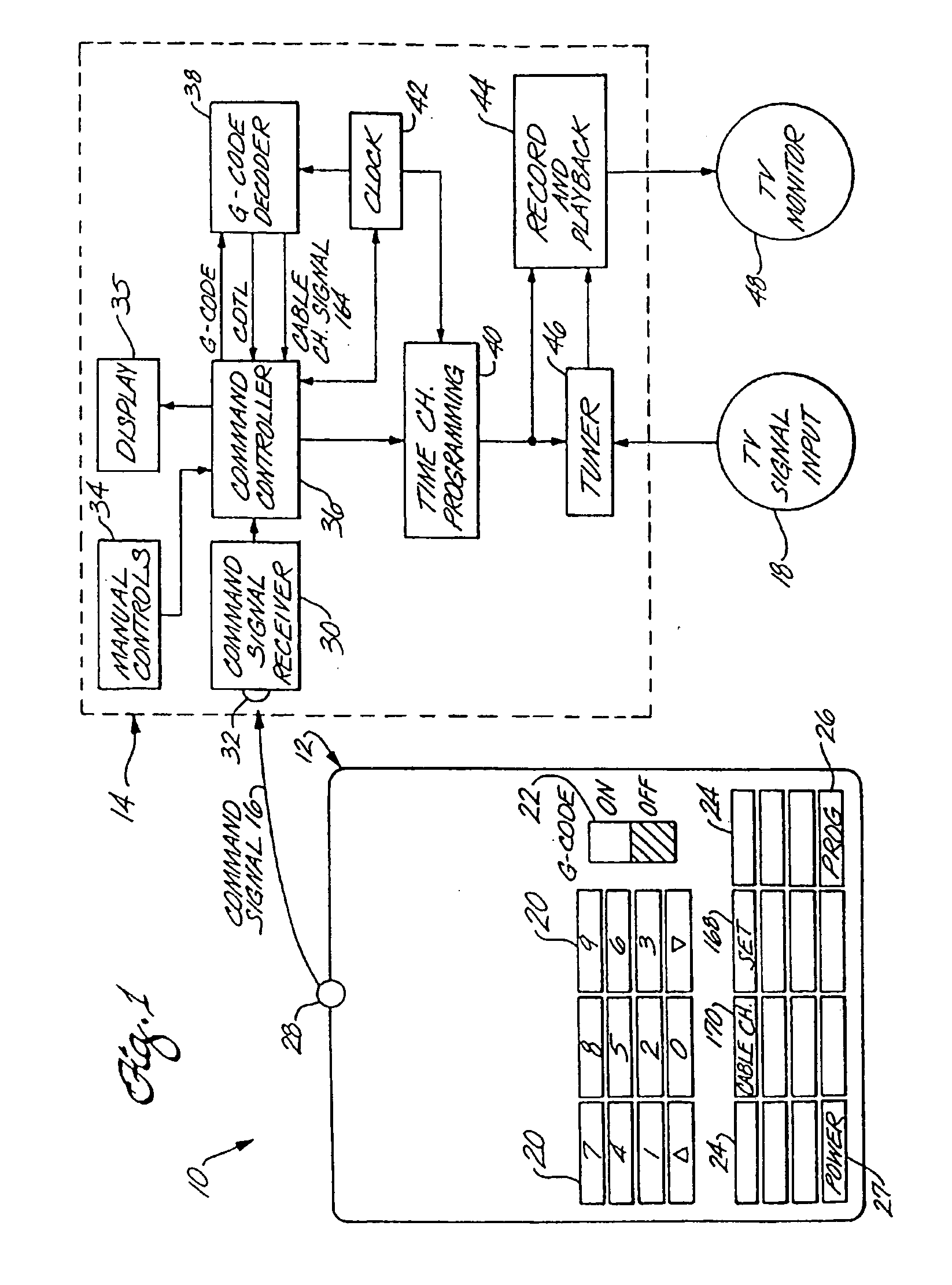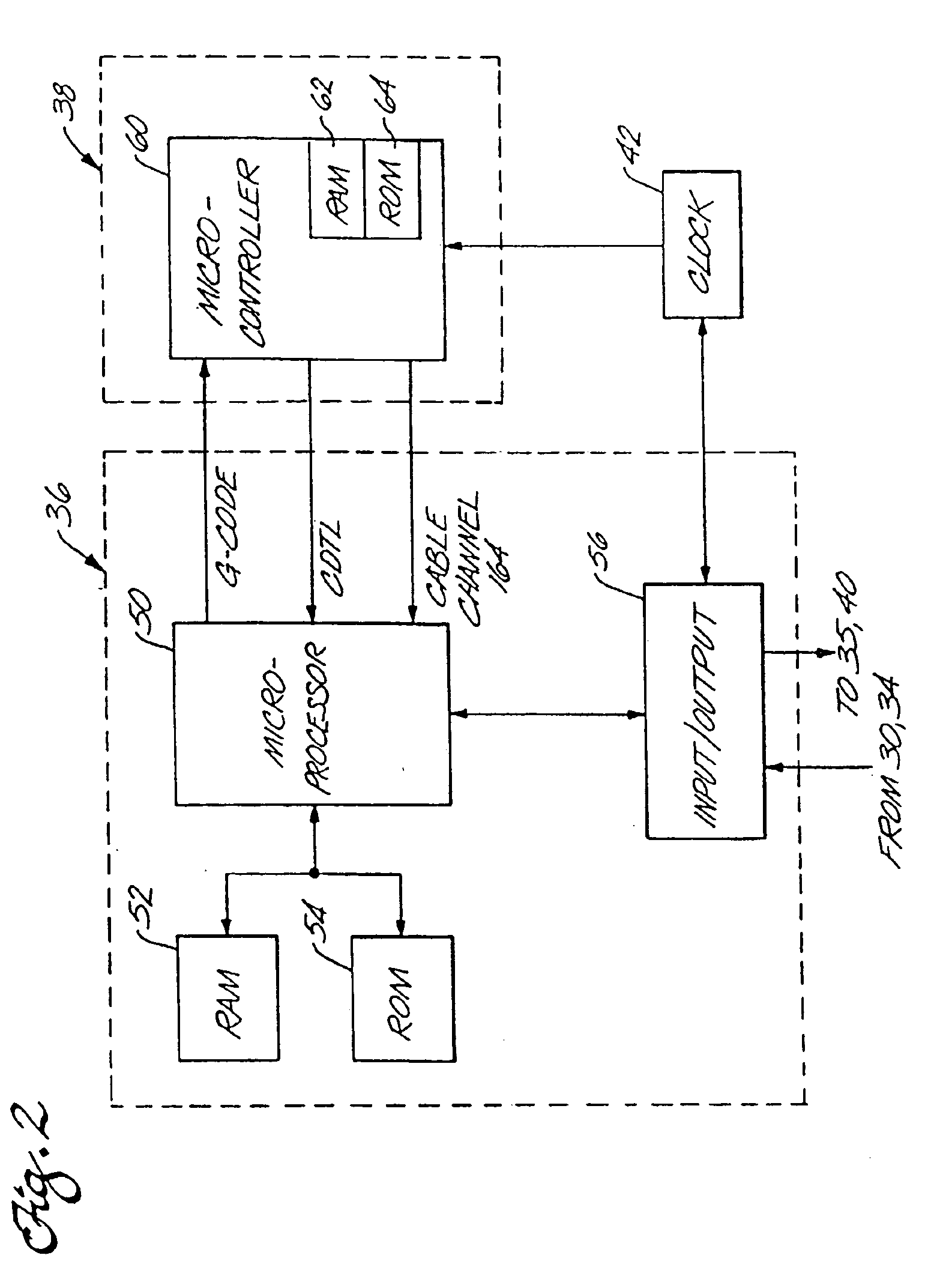Apparatus and method using compressed codes for scheduling broadcast information recording
- Summary
- Abstract
- Description
- Claims
- Application Information
AI Technical Summary
Benefits of technology
Problems solved by technology
Method used
Image
Examples
Embodiment Construction
[0045] Referring now to the drawings, and more particularly, to FIG. 1, there is shown an apparatus for using encoded video recorder / player timer preprogramming information 10 according to this invention. The primary components include a remote controller 12 and a video cassette recorder / player with G-code decoder 14, which can be controlled by remote controller 12 via a command signal 16. The remote controller 12 can have a number of keys, which include numerical keys 20, G-code switch 22, function keys 24, program key 26 and power key 27. There are means in the remote controller 12 that interprets each key as it is pressed and sends the proper command signal 16 to the VCR via an infra-red light emitting diode 28. Except for the G-code switch 22 on the remote controller 12 in FIG. 1, the remote controller 12 is essentially the same as any other remote controller in function. The G-code switch 22 is provided just to allow the user to lock the remote controller 12 in the G-code mode ...
PUM
 Login to View More
Login to View More Abstract
Description
Claims
Application Information
 Login to View More
Login to View More - R&D
- Intellectual Property
- Life Sciences
- Materials
- Tech Scout
- Unparalleled Data Quality
- Higher Quality Content
- 60% Fewer Hallucinations
Browse by: Latest US Patents, China's latest patents, Technical Efficacy Thesaurus, Application Domain, Technology Topic, Popular Technical Reports.
© 2025 PatSnap. All rights reserved.Legal|Privacy policy|Modern Slavery Act Transparency Statement|Sitemap|About US| Contact US: help@patsnap.com



